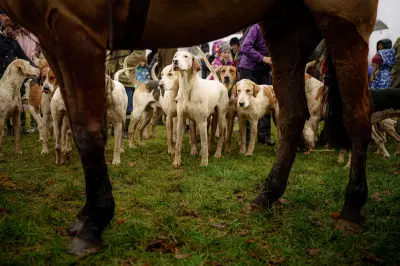
Conservation organisations across England are sounding the alarm over what they describe as a worrying lack of transparency from the Department for Environment, Food and Rural Affairs (Defra). The government body stands accused of withholding critical data on seabird populations, information that experts say is vital for understanding the scale of the crisis facing the UK's coastal wildlife.
A Data Blackout on Declining Populations
The controversy centres on the JNCC's Seabird Monitoring Programme (SMP), a key annual report that tracks the health of Britain's seabird colonies. Despite data collection being completed, the latest findings have not been made public. This delay is hampering conservation efforts and preventing a full assessment of the damage caused by the devastating avian influenza outbreak that has ripped through seabird colonies in recent years.
"The absence of this data is a major setback for conservation," stated a representative from the RSPB. "We need a clear picture of which species are most at risk to direct resources effectively. This information blackout is hindering our ability to respond to the crisis."
Avian Flu's Devastating Impact
The urgency stems from the unprecedented scale of the Highly Pathogenic Avian Influenza (HPAI) pandemic. The UK, which is home to internationally important populations of birds like Gannets and Great Skuas, has witnessed catastrophic die-offs. Some species have experienced population declines of up to 70% in key strongholds, pushing them towards local extinction.
Experts fear that without the comprehensive SMP data, the true extent of the losses remains unknown, making it impossible to gauge the long-term viability of many seabird species around the English coastline.
Calls for Immediate Government Action
The situation has prompted fierce criticism from environmental groups and opposition MPs, who are demanding immediate action from Defra. The core demands include:
- Urgent Publication: The immediate release of all collected seabird population data.
- Enhanced Monitoring: A commitment to increased and adequately funded monitoring programmes.
- A Clear Plan: The development and publication of a robust national seabird recovery plan.
A Defra spokesperson responded, saying, "We recognise the severe impact of avian flu on our seabird populations. We are committed to working with partners to publish data and develop effective strategies for recovery." However, conservationists argue that actions speak louder than words, and the continued delay in data release undermines these assurances.
The outcome of this dispute has significant implications for the future of England's marine ecosystems. With seabirds acting as key indicators of ocean health, their fate is inextricably linked to the overall wellbeing of the UK's coastal environment.





